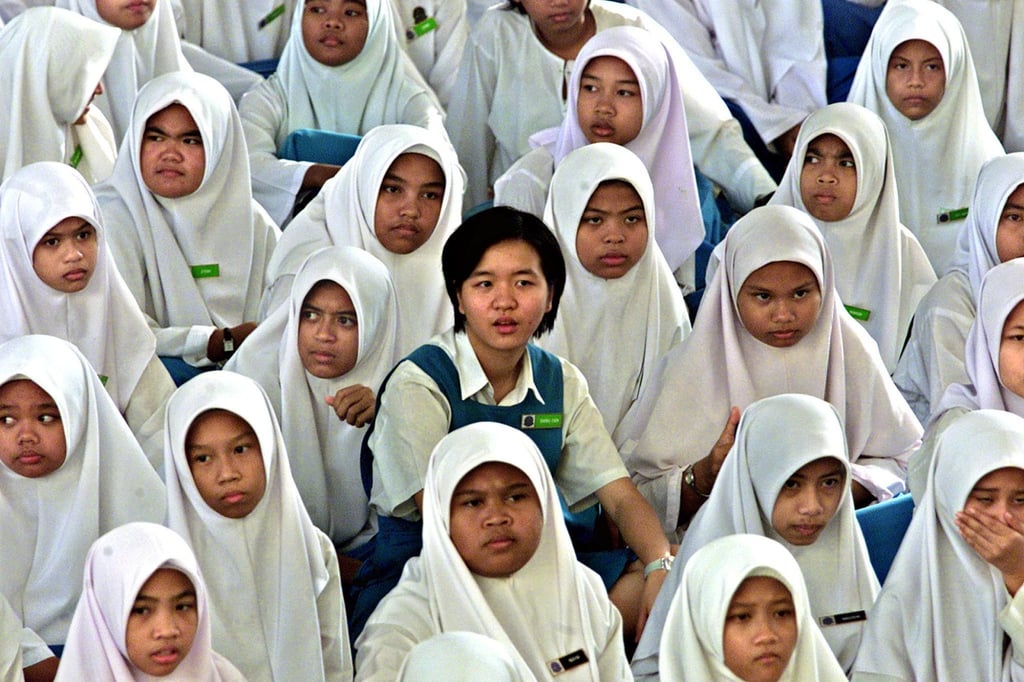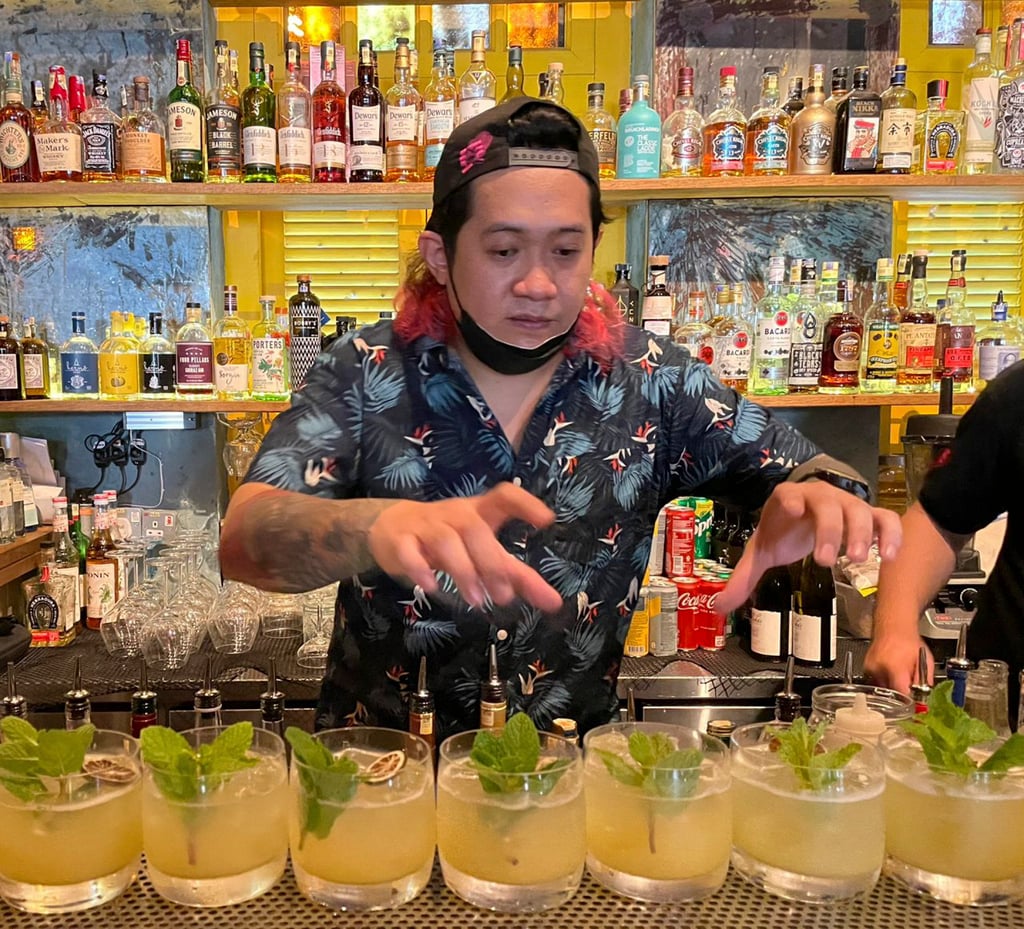Malaysia PAS slams brewery’s donation to Chinese school, exposing ethnic divide
- The accusation comes as some politicians point out that Chinese and Tamil vernacular schools get little funding from the government
Malaysia
+ FOLLOW

Hadi Azmi
+ FOLLOW
Published: 6:12pm, 25 Jul 2024
Why you can trust SCMP
Listen to this article
A brewery’s sponsorship of a Chinese school charity event has sparked controversy in Malaysia, as analysts say the incident highlights alleged discrimination in educational funding for minority groups and tensions over Islamist influence on non-Muslim communities.
The uproar began after the Islamist-led opposition coalition Perikatan Nasional (PN) denounced two government lawmakers – one of whom is Muslim – who were photographed on stage accepting a donation from a brewery for a Chinese vernacular school in Sepang, south of Kuala Lumpur. The Heineken Malaysia-owned brewery Tiger Beer donated a sum of 3.2 million Malaysian ringgit (US$683,000) to the school, according to media reports.
The Malaysian Islamic Party (PAS), a member of the PN coalition, has slammed the donation, saying it “normalises alcohol consumption” and that Malaysia has long banned sponsorships and advertisements from alcohol and tobacco companies.
P Ramasamy, leader of the new Indian-centric Urimai party, said the key issue was not about vernacular schools accepting the brewery’s donation but how the government has treated them.
“If the government provides the necessary funding for Chinese and Tamil vernacular schools, there is no necessity for schools to turn to breweries and tobacco companies for funding,” Ramasamy said in a statement on Thursday.
Unlike national schools that use Malay as their medium of instruction, vernacular schools often rely on community and parental donations due to inadequate government funding. The disparity in support has forced many of these schools to turn to alternative funding sources, including breweries.

Malay students and a Chinese classmate during a school session in Kuala Lumpur. Photo: Reuters
“If the government is fair and balanced in its approach to the funding of schools, especially the vernacular ones, the question of breweries funding schools might not arise,” Ramasamy said.
EVERY SATURDAY
A weekly curated round-up of social, political and economic stories from China and how they impact the world.
GET OUR NEWSLETTER
By registering, you agree to ourT&CandPrivacy Policy
Transport Minister Anthony Loke, who leads the Chinese-dominated multicultural party Democratic Action Party, slammed the opposition over the matter, saying breweries have been organising fundraising concerts for Chinese schools for over 30 years without raising an eyebrow.
“Right now, the opposition wants to create an issue out of everything to create a polemic,” Loke reportedly told local news agency Malaysiakini.
According to Dong Zong, a Chinese education group, there are around 1300 Chinese vernacular schools in Malaysia.
Formed as a compromise between the Malay, Chinese and Indian communities on the eve of independence in 1957, the vernacular schools’ continuous existence to teach students in Mandarin and Tamil has often flared into tension, with some Malay groups accusing them of impeding closer racial cohesion.
Amid the finger-pointing, Chinese educationist Kua Kia Soong has called upon all political parties to make it their “prime manifesto” to demand equal and fair funding for all language streams in this country.

A mixologist making drinks at Concubine KL in Kuala Lumpur’s Chinatown. Photo: Concubine KL
“Only then can schools better align with their mission to promote the well-being and development of their students in a positive and healthy manner,” Kua said in an open letter.
The controversy underscores a broader cultural divide in Malaysia between Malay Muslims, who make up over 60 per cent of the country’s 34 million population, to whom alcohol consumption is a sin, and the rest of the country to whom alcoholic beverages are common items.
Tasmania-based political analyst James Chin said PAS’ stance on this issue may further alienate the Chinese community, potentially eroding their trust in the party’s assurances that it would not interfere in non-Muslim affairs.
“PAS made a mistake when they raised this issue,” Chin told This Week in Asia.
“This will harden the Chinese attitude towards PAS, now they have no reason to trust PAS when they say they will not interfere in non-Muslim lives.”
With a mission to reform Malaysia as an Islamic state as opposed to a Muslim-majority secular state, PAS leaders have long assured non-Muslims that their lifestyles will not be interfered with by the state despite this goal.
King Sultan Ibrahim crowned in Kuala Lumpur
PAS has a history of making controversial decisions that affect non-Muslim communities.
In 2023, PAS-led Kedah state effectively banned gambling and lotteries by not renewing operating licenses, arguing that gambling was not part of Chinese culture, pointing out that even China has banned gambling since 1949.
Between 2008 and 2015, the party aligned itself alongside DAP and Anwar Ibrahim’s multicultural PKR, where it promoted the image of ‘PAS for all’ and fostered close relations with the country’s minorities.
Sociologist Mohd Faizal Musa, a fellow from the ISEAS-Yusof Ishak Institute, said PAS has been struggling to gain the support of non-Muslim Malaysians.
“The views and attitudes of the party president himself and those of PAS’ far-right conservative leadership remain the main reasons why [the party] attracts little support from non-Muslims,” Mohd Faizal said.
